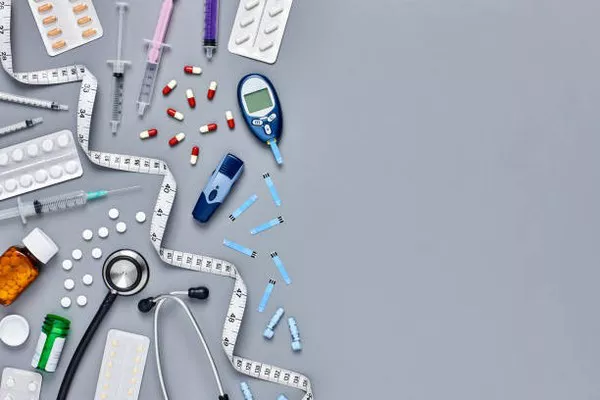Scientists at the University of Copenhagen have made a breakthrough in weight loss and diabetes treatment with the discovery of a new drug target, the neurokinin 2 receptor (NK2R). This promising new therapeutic strategy, aimed at treating obesity and type 2 diabetes (T2D), could offer a significant advancement for millions who struggle with current treatments. The team has developed a potential NK2R agonist that, when tested in animal models, successfully reduced appetite, increased energy expenditure, and improved insulin sensitivity—without the nausea or muscle loss commonly seen with existing GLP-1-based therapies.
Dr. Zach Gerhart-Hines, Associate Professor at the NNF Foundation Center for Basic Metabolic Research (CBMR), emphasized the potential of this discovery to address the long-standing challenges in managing both energy expenditure and appetite control in a way that avoids the unpleasant side effects that have limited the effectiveness of current treatments. “While GLP-1-based therapies have transformed patient care, safely harnessing energy expenditure and controlling appetite without nausea has been a long-sought goal in the field,” Gerhart-Hines stated. “Our discovery of NK2R could make treatments more tolerable and accessible for millions of people.”
Published in Nature, the research paper, titled “NK2R Control of Energy Expenditure and Feeding to Treat Metabolic Diseases,” highlights the potential of targeting NK2R to regulate both energy expenditure and appetite suppression. The team concluded that this single receptor target could improve energy homeostasis and reverse cardiometabolic dysfunction in various species, including humans.
The role of incretin hormones, such as GLP-1, in weight loss and diabetes management has been well established. These hormones are used in drugs that not only aid in weight reduction but also improve kidney function, reduce the risk of fatal cardiac events, and offer protection against neurodegenerative diseases. However, many patients experience side effects like nausea and vomiting, and some see limited effectiveness, especially those living with both obesity and T2D. The researchers note that GLP-1-based therapies often have reduced weight-lowering efficacy in this group of patients, which affects over 380 million people worldwide.
Current treatments primarily focus on lowering appetite, creating a negative energy balance by reducing food intake. But, as the Copenhagen team points out, the importance of increasing energy expenditure has often been overlooked. This is particularly relevant as basal metabolic rates have declined across the population in recent decades. However, there have been no clinically approved methods to safely boost energy expenditure until now.
The breakthrough came when researchers focused on activating NK2R in mice, based on genetic screens that identified the receptor as a key player in energy balance and glucose control. “We set out to identify pathways that could regulate energy homeostasis and improve cardiometabolic health,” the team explained. Their findings were promising: activating NK2R not only increased calorie burning but also reduced appetite—without triggering nausea.
Further research in non-human primates with T2D and obesity showed that NK2R activation led to weight loss, improved insulin sensitivity, and a reduction in blood sugar, triglycerides, and cholesterol levels. These results demonstrated that NK2R agonists could offer a novel, dual action approach—boosting energy expenditure while controlling appetite, with none of the adverse effects associated with current weight loss drugs.
“One of the biggest challenges in drug development is translating results from animal models to humans, but our research shows that NK2R agonism has translated effectively from mice to non-human primates,” said PhD student Frederike Sass, first author of the study. “The benefits observed in both rodents and macaques with obesity and diabetes are particularly exciting.”
This research represents a significant step toward clinical application. The NK2R agonist, EB1001, has already shown promising results in preclinical studies, including in a cohort of older macaques, where it not only resulted in weight loss but also improved cholesterol and triglyceride levels.
The team hopes that their findings will lead to a new generation of weight loss and diabetes treatments that are not only more effective but also better tolerated by patients. By targeting NK2R, they believe they can offer a solution that enhances both appetite control and energy expenditure—key components of successful weight loss therapy.
The University of Copenhagen holds the patent for targeting NK2R, and their research has already led to the formation of three biotech companies—Embark Laboratories, Incipiam Pharma, and Embark Biotech. In 2023, Embark Biotech was acquired by Novo Nordisk to further develop next-generation therapies for cardiometabolic diseases. The hope is that NK2R-based treatments will complement existing drugs, providing better options for individuals living with both obesity and T2D.
Related Topics:
Can Doctors Give You Weight Loss Pills


